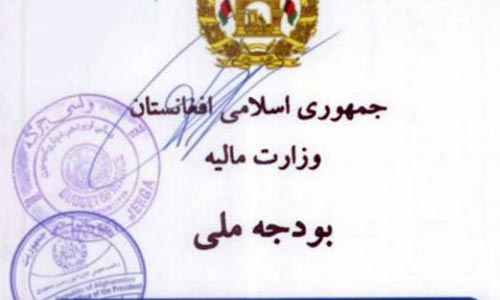Recent peace talks between the US and Taliban insurgents, and exhibition of stubbornness in Taliban insurgents’ attitude toward Afghan Government by refusing to talk to Afghan Government have dwarfed Afghan Government position at both national and international levels. In fact, this phenomenon has been looked at as ‘humiliating’ and ‘shameful’ on the part of Afghan Government. Worse of all, international partners – including NATO member countries, the United States of America and regional countries, who are partners in development – of Afghanistan seem to have connived and contributed in a major way towards belittling Afghan Government before the world and in the face of an insurgency, which is all, albeit denials but designed, supported and nurtured by Pakistan. For the last forty years, Afghanistan and Pakistan have been interlinked to regional and international maneuvering.
In the face of this new strategy, Government of Afghanistan should hold its ground, continue with ongoing improvement in its ranks by honing skills and strategies of its security and defense institutions, engage the enemy in combat operations, regain lost ground to re-establish government and provide support, assistance, good governance and security to general population. It is now or never that Afghan Government should stand strong, be a force to reckon with and be known for being representative, inclusive and legitimate body to represent the Afghan State and people of Afghanistan in all international platforms.
Upendra Baghel, an expert on Afghanistan is of the opinion that ‘international community, whom President Mohammad Ashraf Ghani has believed, let him down as little progress in last five years, which was not appreciated by the lead nation, the US’. He further said that ‘Afghans needed more security, police and development practitioners, not researchers’ and that ‘creating highly qualified personnel without field experience were of little help’. He observes that Taliban are not highly academically qualified but know field crafts. On the other hand efforts and resources have been expended to create a large pool of personnel engaged in support services again without field experience, which creates confusion in administration and chain of command and inefficiency. They continue seeking more resources and money. Drawing experience in the administration in the South Asian region and other developing countries, he says the governance model of Afghanistan is costly, which may not suit to underdeveloped country. He narrates the example of Rwanda to draw some lessons learnt. There, circumstances and situations differ but still, totally new institutions were set up, including armed forces and police. The country got stabilized with much less amount of aid money, but in Afghanistan they played with much of the aid and development money without producing tangible and expected results. President’s recent efforts to explore avenues to reduce the cost of peace efforts in Afghanistan is an appropriate step to infuse efficiency but these efforts are little bit delayed and could have been earlier as almost all SIGAR reports point for such action.
These drawbacks inside Afghan Government institutions – especially security and defense institutions - have created vacuum/ space, which was filled by Taliban supporters including super-active ISI agents and left no stone unturned to take advantage and advance insurgents’ agenda and tout ‘weak Afghan Government institutions’ at major international platforms. This trend has continued and dragged on to an extent, which has culminated in recent shape where Afghan Government was completely ostracized and was left outside of major interlocutors in gatherings and meetings which would decide on the fate of a country and nation which the Afghan Government officially represent. Afghan Government tried to be part of negotiations but it was smartly dwarfed by Taliban in last month’s peace negotiations. Recent unconfirmed reports show Taliban insurgents representative who had led their team in peace negotiations in Qatar, has said that they wanted to dissolve Afghan Army and Police institutions, and would re-establish these anew and if that is the case, then it seems Afghan view on its cherished institutions has not been represented in peace negotiations.
But the most important point, which Taliban insurgents failed to recognize and are wide of the mark, is the presence of Afghan Government as legitimate and bona fide representative of Afghan people and Afghan state. Afghan Government forces fighting Taliban insurgents on the ground and chase Taliban insurgent village after village and their bunkers are blasted every day since last one month when new leadership has taken charge at MoD and MoI. Most importantly, Afghan Government has brought in much improvement in the ranks and performances of its institutions – especially in defense and security arenas. At this point in time in history, no group or organization can replace Afghan Government to protect Afghanistan from sliding back into anarchy and lawlessness as in 1990s. Afghan Government defense and security expenditure stands at $5 billions a year, and an additional $6 billion for development projects and government administration, which makes a total of $ 11 billions a year. This amount is much less and affordable for Afghan friendly countries and regional countries to pay for keeping the present set up and protecting the legacy of last seventeen years progress and development in the country. It will be more costly for regional countries and international partners in the event Afghan Government is sidelined fully and the whole nation and the country is let to slide into unknown destination – which if it is allowed to happen – can engulf the whole region and the world into an insecure place. Therefore, it is in the interest of the people and State of Afghanistan, regional countries and international community – including Taliban insurgents – to support and include Afghan Government in the process of ongoing peace negotiation so that a desirable consensual outcome can be reached and lasting peace be established in Afghanistan.
Home » Opinion » Afghan Government Should Remedy Short-Comings & ‘Governance Deficit’ to Make Itself a Body to Reckon With
Afghan Government Should Remedy Short-Comings & ‘Governance Deficit’ to Make Itself a Body to Reckon With
| Mohammed Gul Sahibbzada

